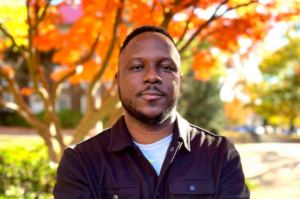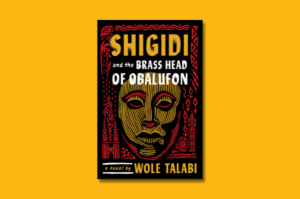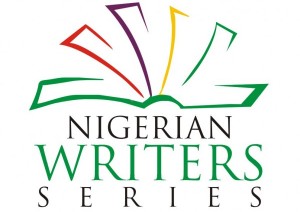
The AfroSF series of anthologies has provided readers with their fix of African speculative and science fiction since its initial publication in 2012. Each of the three volumes, and the upcoming fourth, have been edited by Zimbabwean writer Ivor W. Hartmann. Hartmann both founded and continues to head the series.
The continued success of the series runs parallel with a growing interest in both science fiction and African stories. One need only look at the writings of Nnedi Okorafor or movies like Ryan Coogler’s Black Panther to see that there exists a global interest in imagining African futures. The AfroSF series provides such a platform.
We reached out to Ivor W. Hartmann to chat with him about the success of the series, the state of African speculative and science fiction, and his take on the global interest that the genre seems to be building.
Kris Van der Bijl
The AfroSF series has been heralded as a major player in the developing canon of African speculative fiction. What inspired the series back in 2012?
Ivor W. Hartmann
The idea for AfroSF began in 2007 when I was looking around for continental publishing venues for Science Fiction and found there weren’t many at all. Long story short I decided to work towards addressing that. I felt ready to do so directly in 2011 when I put out the call for the first volume.
Kris Van der Bijl
The third volume was published at the end of 2018, and submission calls for the forthcoming volume closed in June this year. This continued interest suggests that the series has been a success. Did you expect such a positive response?
Ivor W. Hartmann
I don’t think it has been a success in the traditional book sales sense, but that wasn’t the point of the series. I knew that within a whole continent and its Diaspora, there had to be more writers like me interested in writing science fiction who would benefit when given the chance and platform to do so. And, as with most literary movements, the onus is on the writers to lead the way. Writers lead, and publishers follow when the groundwork has been done. So that was the point of the series, to establish an African foothold that others could leap forward from, do better, go bigger, do more, and we’re getting there.
Kris Van der Bijl
Other than the recognition that the series has brought to African speculative fiction, what have been some of its key contributions to contemporary African literature?
Ivor W. Hartmann
Mainly, it has given writers the chance to try their hand at writing science fiction in a safe local space, and, as a result, many of the AfroSF contributors have flourished and gone on to do great things in the genre locally and internationally.
Kris Van der Bijl
How has the African speculative fiction publishing industry changed since you began working in it as a publisher?
Ivor W. Hartmann
There’s a lot more of it. That’s for sure, and that’s what I hoped would happen, not that I’m claiming it was only because of AfroSF. It wasn’t, but I do think it helped. There are more African publishers accepting and publishing SF, and that’s forward progress. There is still a long way to go, but there is a definite momentum now whereas back in 2007 there was almost none.
Kris Van der Bijl
Speaking of momentum, aside from AfroSF, what other platforms or, more broadly, other forces are responsible for the growing interest in African science and speculative fiction?
Ivor W. Hartmann
There’s been so much going on since 2012. Omenana magazine dedicated to SF has been going for five years now. Your own Brittle Paper has been a friend to African SF since 2010 and published quite a bit too. There have been many anthologies including, Lagos 2060, Terra Incognita, Jalada’s Afrofuture(s), Imagine Africa 500, Omenana to Infinity (their first anthology), and more, and most recently Dominion. And these are just the multi-author anthologies, writers have been publishing collections like Dilman Dila’s A Killing in the Sun, Wole Talabi’s Incomplete Solutions, for example. And importantly, writers are publishing novels too: we have the incomparable output of Nnedi Okorafor since 2005, Tade Thompson’s Wormwood Trilogy, and so many more. All these writers and their works are forming the African SF canon that will be the source of many projects in various media formats for decades to come.
Kris Van der Bijl
There is obviously always space for new forms of literature, particularly in Africa. Ten years ago you noted three reasons for the “revolution” in African literature: “the net, westernisation and technological advancement.” Do you still believe that the revolution in African literature is being driven by these forces, or indeed is the revolution continuing at all?
Ivor W. Hartmann
Yes, these have become well used tools in our toolbox now (except the westernisation bit, did I say that…?). We are producing more local content than ever in all mediums. Recently Netflix, for instance, aired the first Zimbabwean feature length film – a milestone moment for local content. This is what revolutions are about, being heard and understood, and in so doing changing systems for the better of all not the few. So, yes, a luta continua, the struggle continues.
Kris Van der Bijl
You’ve written in your blog that the “new wave of African speculative fiction is about: telling our own stories, revealing our vibrant cultures from within, sharing our unique perspectives, and writing ourselves into futures that for so long seemed to spell our doom by virtue of our absence.” I like how you talk about African speculative fiction’s ability to imagine Africa’s presence in its own future. I suppose it’s what makes the genre unique. Why do you think that imagining literary futures is important?
Ivor W. Hartmann
I’d say it is not only important but imperative as we all need to look forward, to examine where we could be going, and writers help us do this with science fiction. Indeed, our road ahead globally seems fairly dire and that’s something we need to come to terms with now, prepare for, and mitigate as much as we possibly can. It could well be that our existence depends upon it.
Kris Van der Bijl
Ryan Coogler’s Black Panther popularized the term ‘Afrofuturism’, which refers to futuristic imaginations of the world centered on black life. But not everyone is embracing the term. For example, Nnedi Okorafor has argued that it does not quite account for African Sci-Fi and fantasy. What is your take on this? What would you say is the relationship between African speculative fiction and transcontinental genre’s like Afrofuturism?
Ivor W. Hartmann
I have great respect for the Afrofuturist movement as defined by its roots in the 1950s and Sun Ra before being coined in 1993 by Dery, but it is more representative of the American African Diaspora than continental. And that is the argument really, that academics and marketers rather lazily called all our works Afrofuturist. A systemic racism is at play here perhaps? So, I stand with the term Africanfuturism as coined and defined by Okorafor.
Kris Van der Bijl
Given the current state of the publishing industry and where you see the currents of literary culture going, what lies ahead for African speculative fiction?
Ivor W. Hartmann
Big things. There is a whole lot going on in the pipeline beneath the surface. We expect to see our works making an impact in all media in the coming years.









COMMENTS -
Reader Interactions